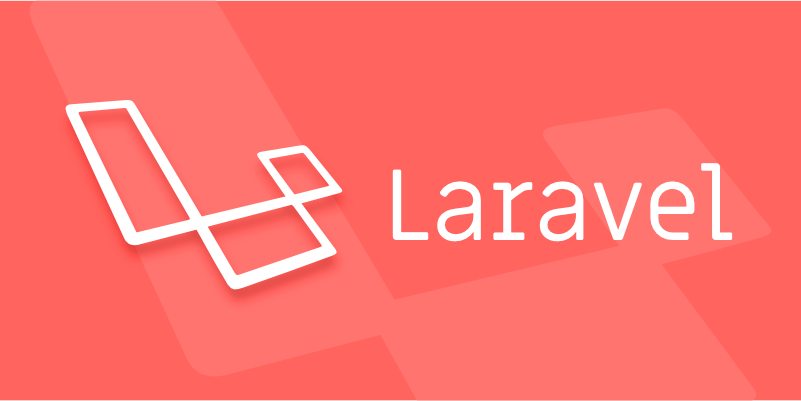Laravel's routing system can improve code organization and performance through routing packets, resource routing, model binding and routing cache. Use Route::middleware(), prefix() and other methods to uniformly manage permissions and path prefixes; Route::resource() can quickly generate CRUD routes; customize model binding fields through Route::model() to improve readability and security; finally run php artisan route:cache in production environment to improve routing loading speed.

Laravel provides a very flexible routing system. In addition to the basic GET and POST routing definitions, there are many advanced techniques and patterns that can improve code organization and maintainability. If you have used basic routing but want to further understand Laravel's routing capabilities, the following content will be helpful to you.

Use Route Groups to manage permissions and prefixes
In development, we often encounter situations where we need to uniformly add middleware, prefix or namespace to a set of routes. At this time, you can use routing packets to process centrally.

For example, all pages of a background module need to be verified to log in, you can write this way:
Route::middleware('auth')->prefix('admin')->group(function () {
Route::get('/dashboard', [AdminController::class, 'dashboard']);
Route::resource('/users', UserController::class);
});The benefits of doing this are:

- Clear logic: all admin-related routes are together for easy search and maintenance;
- Middleware is applied uniformly to avoid repeated additions;
- The prefix is ??automatically added to
/admin, and there is no need to manually splice each path.
You can also specify a namespace for the controller in combination with namespace() , but it is recommended to use the full class name directly, which is more intuitive.
Resource Routes simplifies CRUD operations
Route::resource() is a good helper when you need to create a standard CRUD route for a resource. It will automatically generate 7 routes corresponding to common operations (index, create, store, show, edit, update, destroy).
For example:
Route::resource('posts', PostController::class);
You can also control which methods to generate by only() or except() :
Route::resource('comments', CommentController::class)->only(['index', 'show', 'destroy']);
This is especially useful for quickly building prototypes or front-end separation projects, saving a lot of time to redefine.
Custom model binding improves readability and security
By default, Laravel allows you to get model instances through URL parameters, such as:
Route::get('/users/{user}', function (User $user) {
return $user->name;
}); Here {user} will be parsed into the User model and the data will be queried based on the ID. However, if the user passes in an invalid ID, it will automatically return 404.
If you want to customize the query field (such as replacing the ID with slug), you can bind it in the RouteServiceProvider:
use App\Models\Post;
public function boot()
{
parent::boot();
Route::model('post', Post::class, function ($value) {
return Post::where('slug', $value)->firstOrFail();
});
}This way you can use it directly in the route:
Route::get('/posts/{post}', [PostController::class, 'show']); The URL can be /posts/my-first-post instead of /posts/1 , which is better for SEO and user experience.
Router cache accelerates access speed (suitable for production environments)
When you have many routing files and complex structures, loading the routing will consume a certain amount of performance. Laravel provides a command to compile routes into a single PHP file, greatly improving route loading speed:
php artisan route:cache
A few points to note:
- This command is only applicable to production environments and is not recommended to enable it during development;
- This command must be rerun every time the route is modified;
- The route defined by anonymous functions cannot be cached and must be defined in a controller manner.
So if you plan to launch a project, remember to execute routing cache in the last step, the effect will be very obvious.
Basically all that is it. Although Laravel's routing function is powerful, most of the time, you can deal with most scenarios by mastering a few core skills. The rational use of grouping, resource routing and model binding can make the code cleaner and the logic clearer.
The above is the detailed content of Advanced Routing Techniques and Patterns in Laravel. For more information, please follow other related articles on the PHP Chinese website!

Hot AI Tools

Undress AI Tool
Undress images for free

Undresser.AI Undress
AI-powered app for creating realistic nude photos

AI Clothes Remover
Online AI tool for removing clothes from photos.

Clothoff.io
AI clothes remover

Video Face Swap
Swap faces in any video effortlessly with our completely free AI face swap tool!

Hot Article

Hot Tools

Notepad++7.3.1
Easy-to-use and free code editor

SublimeText3 Chinese version
Chinese version, very easy to use

Zend Studio 13.0.1
Powerful PHP integrated development environment

Dreamweaver CS6
Visual web development tools

SublimeText3 Mac version
God-level code editing software (SublimeText3)

Hot Topics
 What are policies in Laravel, and how are they used?
Jun 21, 2025 am 12:21 AM
What are policies in Laravel, and how are they used?
Jun 21, 2025 am 12:21 AM
InLaravel,policiesorganizeauthorizationlogicformodelactions.1.Policiesareclasseswithmethodslikeview,create,update,anddeletethatreturntrueorfalsebasedonuserpermissions.2.Toregisterapolicy,mapthemodeltoitspolicyinthe$policiesarrayofAuthServiceProvider.
 How do I create new records in the database using Eloquent?
Jun 14, 2025 am 12:34 AM
How do I create new records in the database using Eloquent?
Jun 14, 2025 am 12:34 AM
To create new records in the database using Eloquent, there are four main methods: 1. Use the create method to quickly create records by passing in the attribute array, such as User::create(['name'=>'JohnDoe','email'=>'john@example.com']); 2. Use the save method to manually instantiate the model and assign values ??to save one by one, which is suitable for scenarios where conditional assignment or extra logic is required; 3. Use firstOrCreate to find or create records based on search conditions to avoid duplicate data; 4. Use updateOrCreate to find records and update, if not, create them, which is suitable for processing imported data, etc., which may be repetitive.
 What is the purpose of the artisan command-line tool in Laravel?
Jun 13, 2025 am 11:17 AM
What is the purpose of the artisan command-line tool in Laravel?
Jun 13, 2025 am 11:17 AM
Artisan is a command line tool of Laravel to improve development efficiency. Its core functions include: 1. Generate code structures, such as controllers, models, etc., and automatically create files through make: controller and other commands; 2. Manage database migration and fill, use migrate to run migration, and db:seed to fill data; 3. Support custom commands, such as make:command creation command class to implement business logic encapsulation; 4. Provide debugging and environment management functions, such as key:generate to generate keys, and serve to start the development server. Proficiency in using Artisan can significantly improve Laravel development efficiency.
 How do I run tests in Laravel? (php artisan test)
Jun 13, 2025 am 12:02 AM
How do I run tests in Laravel? (php artisan test)
Jun 13, 2025 am 12:02 AM
ToruntestsinLaraveleffectively,usethephpartisantestcommandwhichsimplifiesPHPUnitusage.1.Setupa.env.testingfileandconfigurephpunit.xmltouseatestdatabaselikeSQLite.2.Generatetestfilesusingphpartisanmake:test,using--unitforunittests.3.Writetestswithmeth
 How do I install Laravel on my operating system (Windows, macOS, Linux)?
Jun 19, 2025 am 12:31 AM
How do I install Laravel on my operating system (Windows, macOS, Linux)?
Jun 19, 2025 am 12:31 AM
Yes,youcaninstallLaravelonanyoperatingsystembyfollowingthesesteps:1.InstallPHPandrequiredextensionslikembstring,openssl,andxmlusingtoolslikeXAMPPonWindows,HomebrewonmacOS,oraptonLinux;2.InstallComposer,usinganinstalleronWindowsorterminalcommandsonmac
 How do I define methods (actions) in a controller?
Jun 14, 2025 am 12:38 AM
How do I define methods (actions) in a controller?
Jun 14, 2025 am 12:38 AM
Defining a method (also known as an action) in a controller is to tell the application what to do when someone visits a specific URL. These methods usually process requests, process data, and return responses such as HTML pages or JSON. Understanding the basic structure: Most web frameworks (such as RubyonRails, Laravel, or SpringMVC) use controllers to group related operations. Methods within each controller usually correspond to a route, i.e. the URL path that someone can access. For example, there may be the following methods in PostsController: 1.index() – display post list; 2.show() – display individual posts; 3.create() – handle creating new posts; 4.u
 What are controllers in Laravel, and what is their purpose?
Jun 20, 2025 am 12:31 AM
What are controllers in Laravel, and what is their purpose?
Jun 20, 2025 am 12:31 AM
The main role of the controller in Laravel is to process HTTP requests and return responses to keep the code neat and maintainable. By concentrating the relevant request logic into a class, the controller makes the routing file simpler, such as putting user profile display, editing and deletion operations in different methods of UserController. The creation of a controller can be implemented through the Artisan command phpartisanmake:controllerUserController, while the resource controller is generated using the --resource option, covering methods for standard CRUD operations. Then you need to bind the controller in the route, such as Route::get('/user/{id
 How do I customize the authentication views and logic in Laravel?
Jun 22, 2025 am 01:01 AM
How do I customize the authentication views and logic in Laravel?
Jun 22, 2025 am 01:01 AM
Laravel allows custom authentication views and logic by overriding the default stub and controller. 1. To customize the authentication view, use the command phpartisanvendor:publish-tag=laravel-auth to copy the default Blade template to the resources/views/auth directory and modify it, such as adding the "Terms of Service" check box. 2. To modify the authentication logic, you need to adjust the methods in RegisterController, LoginController and ResetPasswordController, such as updating the validator() method to verify the added field, or rewriting r






